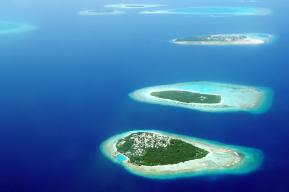Article
Special Rapporteurs Issue Joint Declaration on Environmental Transparency and Media Freedom

Youth Multimedia Room
The articles was produced by the Youth Multimedia Room. The views and opinions expressed in this article are those of the contributors of the Youth Multimedia Room and do not represent the views of UNESCO or its partners. The designations concerning the legal status of any country, territory, city or area, or of its authorities, or concerning the delimitation of its frontiers or boundaries do not imply the expression of any opinion whatsoever on the part of UNESCO or its partners.
In the face of threats and intimidation against journalists covering the climate change crisis, a new joint declaration from the Special Rapporteurs on Freedom of Expression calls for robust legislation and multi-stakeholder collaboration to address environmental challenges and safeguard press freedom.
“There’s a right to information that is built into the heart of freedom of expression. And so we begin our joint declaration with that access to information and we look at the responsibilities there, particularly we look at the responsibilities of the state; the states must uphold the principle of maximum disclosure,” said Ms. Irene Khan, UN Special Rapporteur on the promotion and protection of the right to freedom of opinion and expression, during a panel organized as part of the 2024 World Press Freedom Day.
Ms Khan highlighted the impact of the crisis on marginalized communities and stressed the importance of state accountability in promoting media freedom. She called for legislation compelling companies to disclose comprehensive information on their operations, including environmental and human rights impacts. She also emphasized the need for state transparency to ensure maximum disclosure and the inclusion of disaggregated data for journalists to access, as outlined in the Joint Declaration.
Mr. Raúl Fernandez Daza, Ambassador of Chile to France and Chairman of the IPDC Council and Bureau, added: “These documents have served as important tools to design policies to include in global governments mechanisms that protect journalists and promote freedom of expression”.
Ms. Teresa Ribeiro, OSCE representative on freedom of the media, underscored the need for media and information literacy programs to combat misinformation effectively. “The correct information is the one that enables public debate that serves the public interest,” she said.
Mr. Pedro Vaca, special rapporteur for the Inter-American Commission on Human Rights, emphasized the need for a comprehensive approach to protecting environmental journalists that involves governments, civil society and the private sector, as recommended in the Joint Declaration. “The most important thing is to take into account the knowledge and experiences of people especially impacted by climate change,” he said.
Andrea Obaid, of ACHIPEC in Chile, who moderated the panel, urged participants to continue advocating for environmental transparency and media freedom, emphasizing the crucial role of joint declarations in guiding collective action. She encouraged attendees to leverage the insights gained from the session to drive positive change in their communities and beyond, in alignment with the principles of the Joint Declaration.
Watch the recording
The Joint Declaration specifically addresses:
The imperative of protecting journalists reporting on environmental issues, particularly in the face of threats and intimidation.
The importance of state accountability in ensuring access to accurate information and upholding media freedom.
The critical role of media literacy programs in combating misinformation and empowering communities to engage in environmental debates.
The necessity of creating an enabling environment for journalists to report freely on environmental issues, free from fear of reprisals.
Shampi Anna




